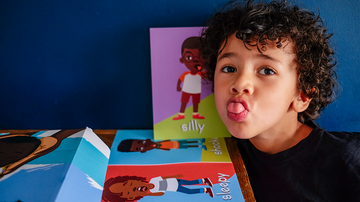It's incredible to think that our babies can recognize different ethnicities within such a short time frame. Recent research has revealed that three-month-olds, but not newborns, prefer own-race faces. This suggests that adults' perceptions of ethnic differences are learned and derived from differences in exposure to own- versus other-race faces during early development.
This research was conducted by Sangrigoli S and de Schonen S. The authors observed how newborns and three month olds reacted when exposed to pictures of own-race and other-race faces. They found that three month olds were more likely to recognize their own race than the other race, whereas the newborns showed no preference for either race at all.
The study also observed the importance of exposure in developing a preference for own-race faces. The authors concluded that the experience of exposure is necessary for infants to develop this preference, as it's something they learn over time rather than being innate at birth. The findings suggest that preferential selectivity based on ethnic differences is not present in the first days of life, but is instead acquired within the first 3 months of life.
These results provide insight into how our babies perceive racial differences, which helps us understand why adults are sensitive to physical characteristics associated with different ethnicities. This highlights just how quickly babies learn and grow! It's truly amazing how each day brings something new - even if it's only learning to distinguish between racial features!
These findings by Sangrigoli S and de Schonen S show us just how quickly our babies learn and adapt to their environment. In just three months, they are able to recognize different races and develop preferences for their own race – something that could take years or decades for adults! This highlights why it’s so important to expose your child to varied experiences early on – they will absorb it all like sponges! As parents, we should be proud of our children’s progress every step along the way!
- Sangrigoli S, de Schonen S. Recognition of own-race and other-race faces by three-month old infants. Journal of Child Psychology and Psychiatry. 2004;45:1–9. [PubMed] [Google Scholar] [Ref list]



